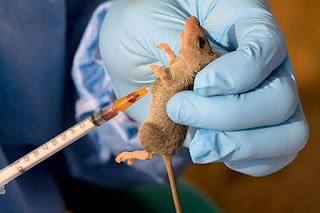Following the current intractable outbreak of Lassa fever in various part of the country, the Association of Medical Laboratory Scientists of Nigeria (AMLSN) offers the following advice on practice standards to all Medical Laboratory Scientists and members of the Nigeria Healthcare professions.
- Practice standard precautions at all times while handling patients and body fluids i.e. always perform hand hygiene at the designated five moments, wear the correct PPE based on the procedure to be performed, irrespective of provisional diagnosis of the patient.
- Appropriately dispose and disinfect items used by patients such as syringes, thermometers, beddings, clothing, cups, plates, spoons, etc.
- Ensure injectables and sharp items are disposed safely.
- Clean the medical laboratory environment regularly using appropriate materials and methods.
- Good decontamination procedures should be practiced, including response to spill.
- Dispose of all medical laboratory waste in a safe manner.
- Sterilization (autoclave) of infectious waste must be done before leaving the lab for incineration. If waste management facilities are not available, other arrangements must be made with a licensed external waste contractor to transport, treat, and dispose of the waste.
- Maintain a high index of suspicion for Lassa fever i.e. be vigilant and look out for Lassa fever symptoms. Remember, not all fevers are due to malaria.
- Other causes of febrile illness including Lassa fever should be considered and cases investigated accordingly when malaria suspected case tested negative.
- Any febrile illness that has not responded to 48 hours use of anti-malaria or antibiotics should raise an index of suspicion for Lassa fever!
- Appropriate Personal Protective Equipment (PPE) that covers the clothing and skin and completely protects mucous membranes is required when caring for Lassa fever suspected/confirmed patients.
- It is strongly recommended to work inside a certified Class I or certified Class II biosafety cabinet (BSC) when handling or manipulating patient specimens.
- When a biosafety cabinet is not available or possible, then additional safety equipment should be used to contain any splashes or potential aerosols generated. This could be a small benchtop BSC, a PCR workstation (e.g., “dead air box”), a plexiglass splash shield, or other physical containment device.
- Medical Laboratories should consider using equipment with closed tube systems in which the specimen container (e.g., vacutainer tube) stays capped during testing.
- Centrifugation can pose a risk of aerosolization. If centrifugation is necessary for testing, centrifuges should have sealed buckets or sealed rotors. After centrifugation, the sealed buckets or rotors should be opened inside a biosafety cabinet.
- Before removing patient specimens from the site of care, it is advisable to plan the route of the sample from the bedside to the laboratory or testing area to avoid high-traffic areas.
- Before removing patient specimens from the site of care, the outside of the specimen containers should be decontaminated with an approved disinfectant.
- Medical Laboratory Scientists caring for patients with Lassa fever must have received comprehensive training and demonstrated competency in performing Lassa fever-related infection control practices and procedures.
- Medical Laboratory Scientists providing care to patients with Lassa fever must be supervised by an onsite manager at all times, and a trained observer must supervise each step of every PPE donning/doffing procedure to ensure established PPE protocols are completed correctly.
- Individuals unable or unwilling to adhere to infection control and PPE use procedures should not provide care for patients with Lassa fever.
- The national guidelines for Lassa fever case management and Infection prevention and control are available on the NCDC website for download (http://ncdc.gov.ng/diseases/guidelines).
- Please report all suspected cases of Lassa fever to your Local Government Area Disease Surveillance and Notification Officer (DSNO). They are the first link to response and care for Lassa fever cases in Nigeria.
So far, there has been no reported case of Lassa fever infection involving a Medical Laboratory Scientist. We note with satisfaction the high compliance rate of Medical Laboratory Scientists to set SAFETY STANDARDS.
Signed
National Publicity Secretary.
For: Association of Medical Laboratory Scientists of Nigeria (AMLSN)
@AMLSNNational #NCDC NCDC Toll-Free Number: 0800-970000-10
Bottom ads






